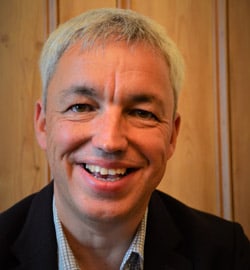 If there is one thing we should have learned in the last few years it is to expect the unexpected. Brexit, Trump becoming president and in France a movement that did not exist two years ago holding the parliamentary majority. Good or bad, change it is and like everything in life we need to adapt to survive. Sticking our heads in the sand and doing it the way we always have will just not cut it.
If there is one thing we should have learned in the last few years it is to expect the unexpected. Brexit, Trump becoming president and in France a movement that did not exist two years ago holding the parliamentary majority. Good or bad, change it is and like everything in life we need to adapt to survive. Sticking our heads in the sand and doing it the way we always have will just not cut it.
As healthcare communicators we have done a pretty good job of adapting to changes; for example, changing national healthcare structures, the surge in digital and social media, the increased regulatory environment and the globalisation of campaign development. But, how do we prepare for the future and ensure we are ready and even ahead of the learning curve for the challenges ahead? Probably the biggest challenge is knowing what will be the future paradigm. People will tell you they know, some may even be right, but remember Brexit and France’s new political era.
So maybe it’s time to stop predicting and start refocusing on the fundamentals of what makes great healthcare communications, ensuring we are prepared to excel, whatever the future.
One thing we know is that our global populations are ageing and the burden on healthcare provision is only going to increase. Whatever the economic environment, this will ultimately increase cost pressure on the delivery of care. Successfully communicating value will always be fundamental in global health marketing. For pharma, the narratives to demonstrate value are complex and the audiences who need to understand and act on them are diverse in terms of who they are and what they may perceive as value. Let’s consider some of the skills successful communicators therefore need.
Being able to evaluate the mindset/behavioural changes required means whatever their discipline, practitioners need to unlock, and utilise, unique insights into their audiences. Asking the same questions will get the same answers. Improving our ability to uncover insights we have never heard before can take us in directions we have never been before. In developing advisory boards, focus groups or one-to-one discussions, communicators need to be skilled at tailoring the conversation, making these activities more ‘one-off designer’ and less ‘off-the-shelf’.
It is increasingly important for us to be able to strategically evaluate and deliver in synergy across the whole marketing and medical mix as well as geographies. We need to know, understand and be able to act based on the whole picture. This is much more than consistent global messaging, it is how, when, where and to whom the message is delivered.
We also cannot forget that we work in an increasingly regulated environment. At all levels of management, we need to fully understand the rules and regulations and be able to work within these, without allowing them to restrict our goals.
These are just a few reasons why the role of the healthcare communicator is complex. The skills we need are broad and the knowledge and understanding required is ever-changing. We can never afford to stop experiencing and learning. Some learning we can achieve ‘on the job’, but the rest is gained through initiatives such as best practice-sharing, formalised CPD, mentoring and learning from interactions with others from inside and outside our speciality.
So, for example, when we put on our best dress or dinner suit for a fun night of drinking, dancing and catching up with colleagues, let’s not forget how important those awards are to showcase and share best practice within our sector. Yes, they recognise those delivering at the top of their profession, but they can also educate and inspire us to develop or improve our own skills. Do I have time and will it really benefit me to attend that breakfast meeting with the interesting speaker? Broadening our understanding, through hearing the approach or information others can share, could well help deliver that ‘light-bulb moment’ for your next campaign. Is all your team up-to-date with relevant codes and regulatory training? This is so much more than a tick-box exercise. It allows communicators to fully appreciate the environment within which they work, and can often actually open their minds to opportunities.
The Healthcare Communications Association (HCA) itself, as the body representing our sector, is evolving to help members achieve and maintain the fundamental skills, knowledge and understanding to ‘future-proof’ their ability to meet the challenges ahead. We will be supporting member organisations by accrediting their in-house professional development initiatives, while also running our own accredited CPD programmes for members. HCA events will share global and regional best practice and experiences from within and outside our sector. Similarly, networking events will support mentoring and peer engagement as well as the opportunity to interact with other key stakeholders. And to help address the bigger challenges that the healthcare communications sector may face, the HCA will provide the face and strength of the collective voice to ensure we are represented and influence the changes that affect us.
Whatever the global or local changes and challenges ahead, the HCA will be working with members to help them maintain their expertise in the fundamentals of their role, thereby helping ensure our profession is fully equipped to continue to deliver world class healthcare communications.
Mike Dixon is CEO of the Healthcare Communications Association





